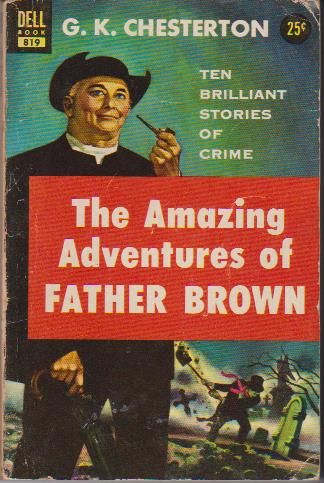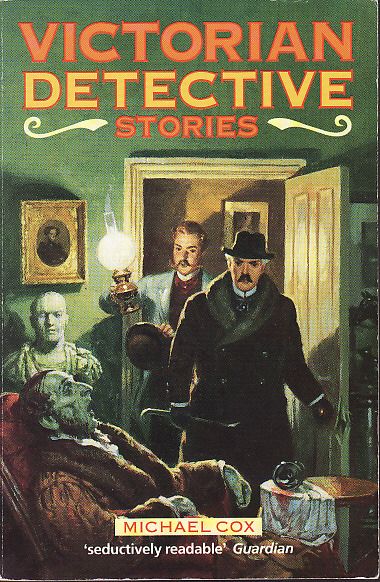I really enjoy old British-based detective fiction – the classical whodunnits of the mystery writers of Britain from about 1920 through to about 1950. This period is generally referred to as the Golden Age of British detective fiction, and it was a hugely popular genre of course. The genre brought many female writers to the fore and they dominated the period in sales, though there were many males writers who wrote such mysteries with success too.
The successful female writers in the genre were referred to as Crime Queens, and by common consensus (and with the benefit of hindsight), there are four writers that have now long been considered the four queens of crime fiction: Agatha Christie, Margery Allingham, Dorothy L. Sayers and Ngaio Marsh.
As well as producing much-loved books that have stood the test of time, these four writers exemplify the genre nicely by having recurring detectives in long series. We get to know the detectives, their methods, foibles and mannerisms.
I thought I would kick off a thread dedicated to British Golden Age detective fiction, by listing what I hope is a reasonably comprehensive starting list of notable authors in the genre. I’ve noted their main detectives (pretty much all had a recurring detective or two), as well as some of the most well regarded books. I’ve read a fair few, but not the majority of these. I’m looking forward to reading more. A surprisingly large number are still in print, despite the fact that many are no longer household names.
The list is unapologetically British – sorry, no hard-boiled US crime here – this is strictly a mystery genre. The settings of these tend more to the country town in England, with murder most horrid being committed by the scullery girl (really an exiled half-sister), in the drawing room with “pills” in the brandy.
I’ve noted a few works by the four most notable Queens of Crime first, then followed with other authors (in no particular order). Who have I missed? What books from these authors do you particularly like? Which authors would you say are ‘better’ than others? Let’s talk mysteries here.
(Incidentally, some here will have noticed I’m a fan of PG Wodehouse. I think it’s no coincidence that his characters are forever reading popular mystery novels of this kind. Freddie and Bertie are no stranger to a good whodunit, and I think that may be part of what initiated this thread!)
Margery Allingham
Notable detective: Albert Campion
The Crime at Black Dudley (1929), Mystery Mile (1930), Police at the Funeral (1931), Sweet Danger (1933), Death of a Ghost (1934), The Case of the Late Pig (1937)
Agatha Christie
Notable detectives: Miss Marple, Hercule Poirot
The Murder of Roger Ackroyd (1926), The Murder at the Vicarage (1930), Murder on the Orient Express (1934), The ABC Murders (1935), Death In The Clouds (1935), And Then There Were None (1939), One, Two, Buckle My Shoe (1940), Five Little Pigs (1943), Crooked House (1949), A Murder is Announced (1950)
Ngaio Marsh
Notable detective: Supt. Roderick Alleyn
A Man Lay Dead (1934), Enter a Murderer (1935), Overture to Death (1939)
Dorothy L. Sayers
Notable detective: Lord Peter Wimsey
Whose Body? (1923), Strong Poison (1930), Have His Carcase (1932), Murder Must Advertise (1933), The Nine Tailors (1934), Gaudy Night (1935)
G.K. Chesterton
Notable detective: Father Brown
Short story collections, e.g.: The Incredulity of Father Brown (1926)
Cyril Hare
Notable detectives: Insp. Mallett, Francis Pettigrew
Tenant for Death (1937), Suicide Excepted (1939), Tragedy at Law (1942), When the Wind Blows (1949), An English Murder (1951)
Edmund Crispin
Notable detective: Gervase Fen
The Moving Toyshop (1946), Swan Song (1947), Buried for Pleasure (1948)
Cecil Street (writing as Miles Burton or John Rhode)
Notable detectives: Desmond Merrion (Burton); Dr Priestley (Rhode)
As Miles Burton: The Secret of High Eldersham (1930), The Shadow on the Cliff (1944)
As John Rhode: The Elusive Bullet (1931), The Claverton Affair (1933), The Corpse in the Car (1935)
Josephine Tey
Notable detective: Miss Pym, Insp. Alan Grant
Miss Pym Disposes (1946), The Franchise Affair (1948), The Daughter of Time (1951)
Georgette Heyer
Notable detective: Insp. Hannasyde
Why Shoot a Butler? (1933), Death in the Stocks (1935), Behold, Here’s Poison (1936), A Blunt Instrument (1938)
Freeman Wills Crofts
Notable detective: Insp. French
Inspector French's Greatest Case (1925), The Sea Mystery (1928), Crime at Guildford (1935)
Joanna Cannan
Notable detective: Det. Insp. Guy Northeast
No Walls of Jasper (1930), Frightened Angels (1936), They Rang Up the Police (1939), Death at The Dog (1941), Murder Included (1950)
J.J. Connington
Notable detective: Sir Clinton Driffeld
Tragedy at Ravensthorpe (1927), Murder in the Maze (1927), The Case with Nine Solutions (1928), The Sweepstakes Murders (1932), The Castleford Conundrum (1932)
Anthony Berkeley
Notable detective: Roger Sheringham
The Wychford Poisoning Case (1926), The Poisoned Chocolates Case (1929), Not to be Taken (1938)
Leo Bruce
Notable Detective: Sgt. Beef
Case for Three Detectives (1936), Case Without a Corpse (1937), Case with Four Clowns (1939), Case for Sergeant Beef (1947)
Philip MacDonald
Notable detective: Col. Anthony Gethryn
The Rasp (1925), The Maze (1932), Murder Gone Mad (1931), The Nursemaid Who Disappeared (1938)
H.C. Bailey
Notable detective: Dr. Reggie Fortune
Short stories of Mr Fortune; Black Land, White Land (1937), The Bishop's Crime (1940), Slippery Ann (1944)
Patricia Wentworth
Notable detective: Miss Silver
Grey Mask (1928), The Case is Closed (1937)
Michael Innes
Notable detective: Sir John Appleby
Death at the President’s Lodging (1936), The Daffodil Affair (1942), Appleby’s End (1945)
Herbert Adams
Notable detective: Roger Bennion
John Brand's Will (1933), The Chief Witness (1939), Crime Wave at Little Cornford (1948)
John Dickson Carr
(American, but resident in Britain many years and a key figure in the genre)
Notable detective: Dr Gideon Fell
The Hollow Man/The Three Coffins (1935), The Crooked Hinge (1938), The Problem of the Green Capsule (1939), He who Whispers (1946)
The successful female writers in the genre were referred to as Crime Queens, and by common consensus (and with the benefit of hindsight), there are four writers that have now long been considered the four queens of crime fiction: Agatha Christie, Margery Allingham, Dorothy L. Sayers and Ngaio Marsh.
As well as producing much-loved books that have stood the test of time, these four writers exemplify the genre nicely by having recurring detectives in long series. We get to know the detectives, their methods, foibles and mannerisms.
I thought I would kick off a thread dedicated to British Golden Age detective fiction, by listing what I hope is a reasonably comprehensive starting list of notable authors in the genre. I’ve noted their main detectives (pretty much all had a recurring detective or two), as well as some of the most well regarded books. I’ve read a fair few, but not the majority of these. I’m looking forward to reading more. A surprisingly large number are still in print, despite the fact that many are no longer household names.
The list is unapologetically British – sorry, no hard-boiled US crime here – this is strictly a mystery genre. The settings of these tend more to the country town in England, with murder most horrid being committed by the scullery girl (really an exiled half-sister), in the drawing room with “pills” in the brandy.
I’ve noted a few works by the four most notable Queens of Crime first, then followed with other authors (in no particular order). Who have I missed? What books from these authors do you particularly like? Which authors would you say are ‘better’ than others? Let’s talk mysteries here.
(Incidentally, some here will have noticed I’m a fan of PG Wodehouse. I think it’s no coincidence that his characters are forever reading popular mystery novels of this kind. Freddie and Bertie are no stranger to a good whodunit, and I think that may be part of what initiated this thread!)
Margery Allingham
Notable detective: Albert Campion
The Crime at Black Dudley (1929), Mystery Mile (1930), Police at the Funeral (1931), Sweet Danger (1933), Death of a Ghost (1934), The Case of the Late Pig (1937)
Agatha Christie
Notable detectives: Miss Marple, Hercule Poirot
The Murder of Roger Ackroyd (1926), The Murder at the Vicarage (1930), Murder on the Orient Express (1934), The ABC Murders (1935), Death In The Clouds (1935), And Then There Were None (1939), One, Two, Buckle My Shoe (1940), Five Little Pigs (1943), Crooked House (1949), A Murder is Announced (1950)
Ngaio Marsh
Notable detective: Supt. Roderick Alleyn
A Man Lay Dead (1934), Enter a Murderer (1935), Overture to Death (1939)
Dorothy L. Sayers
Notable detective: Lord Peter Wimsey
Whose Body? (1923), Strong Poison (1930), Have His Carcase (1932), Murder Must Advertise (1933), The Nine Tailors (1934), Gaudy Night (1935)
G.K. Chesterton
Notable detective: Father Brown
Short story collections, e.g.: The Incredulity of Father Brown (1926)
Cyril Hare
Notable detectives: Insp. Mallett, Francis Pettigrew
Tenant for Death (1937), Suicide Excepted (1939), Tragedy at Law (1942), When the Wind Blows (1949), An English Murder (1951)
Edmund Crispin
Notable detective: Gervase Fen
The Moving Toyshop (1946), Swan Song (1947), Buried for Pleasure (1948)
Cecil Street (writing as Miles Burton or John Rhode)
Notable detectives: Desmond Merrion (Burton); Dr Priestley (Rhode)
As Miles Burton: The Secret of High Eldersham (1930), The Shadow on the Cliff (1944)
As John Rhode: The Elusive Bullet (1931), The Claverton Affair (1933), The Corpse in the Car (1935)
Josephine Tey
Notable detective: Miss Pym, Insp. Alan Grant
Miss Pym Disposes (1946), The Franchise Affair (1948), The Daughter of Time (1951)
Georgette Heyer
Notable detective: Insp. Hannasyde
Why Shoot a Butler? (1933), Death in the Stocks (1935), Behold, Here’s Poison (1936), A Blunt Instrument (1938)
Freeman Wills Crofts
Notable detective: Insp. French
Inspector French's Greatest Case (1925), The Sea Mystery (1928), Crime at Guildford (1935)
Joanna Cannan
Notable detective: Det. Insp. Guy Northeast
No Walls of Jasper (1930), Frightened Angels (1936), They Rang Up the Police (1939), Death at The Dog (1941), Murder Included (1950)
J.J. Connington
Notable detective: Sir Clinton Driffeld
Tragedy at Ravensthorpe (1927), Murder in the Maze (1927), The Case with Nine Solutions (1928), The Sweepstakes Murders (1932), The Castleford Conundrum (1932)
Anthony Berkeley
Notable detective: Roger Sheringham
The Wychford Poisoning Case (1926), The Poisoned Chocolates Case (1929), Not to be Taken (1938)
Leo Bruce
Notable Detective: Sgt. Beef
Case for Three Detectives (1936), Case Without a Corpse (1937), Case with Four Clowns (1939), Case for Sergeant Beef (1947)
Philip MacDonald
Notable detective: Col. Anthony Gethryn
The Rasp (1925), The Maze (1932), Murder Gone Mad (1931), The Nursemaid Who Disappeared (1938)
H.C. Bailey
Notable detective: Dr. Reggie Fortune
Short stories of Mr Fortune; Black Land, White Land (1937), The Bishop's Crime (1940), Slippery Ann (1944)
Patricia Wentworth
Notable detective: Miss Silver
Grey Mask (1928), The Case is Closed (1937)
Michael Innes
Notable detective: Sir John Appleby
Death at the President’s Lodging (1936), The Daffodil Affair (1942), Appleby’s End (1945)
Herbert Adams
Notable detective: Roger Bennion
John Brand's Will (1933), The Chief Witness (1939), Crime Wave at Little Cornford (1948)
John Dickson Carr
(American, but resident in Britain many years and a key figure in the genre)
Notable detective: Dr Gideon Fell
The Hollow Man/The Three Coffins (1935), The Crooked Hinge (1938), The Problem of the Green Capsule (1939), He who Whispers (1946)



